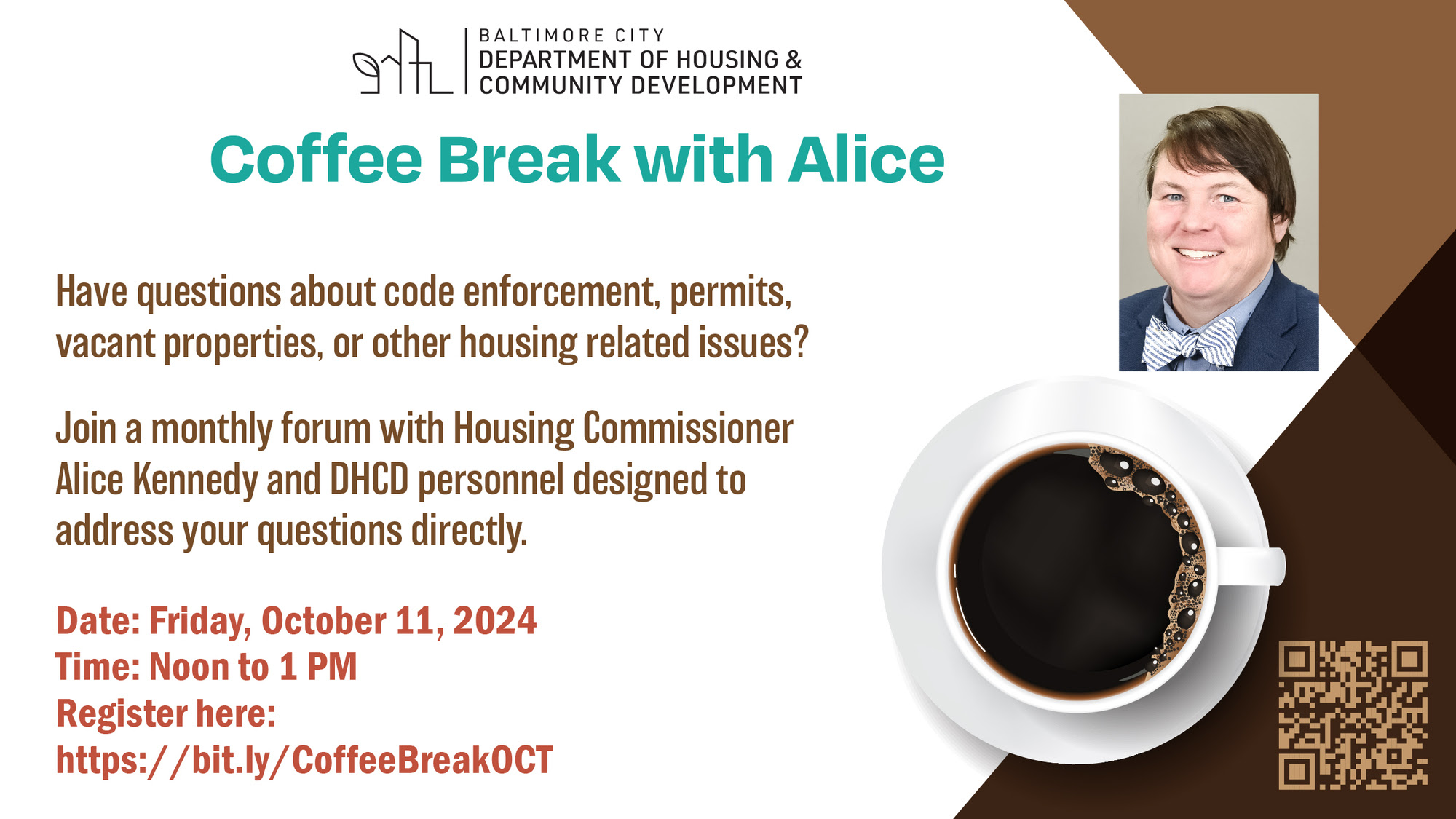This is your chance to make your opinion and preferences known about Baltimore's housing now and in the future! The Baltimore City Department of Housing and Community Development (DHCD) is seeking input from residents like you to better plan for affordable housing across our city. This work will move Baltimore forward. We are focused on creating a plan that strengthens and revitalizes neighborhoods for all residents, at all income levels.
By participating in our survey, you can play a vital role in shaping policies and initiatives that increase access to safe, decent, stable, and affordable housing options for all Baltimoreans. The Baltimore City Comprehensive Housing Plan will consist of actions to expand affordable housing, minimize displacement for current residents, and to build trust with our communities. Through an intentional review of existing programs, the new Housing Plan will identify opportunities, potential policies, and barriers that hamper community growth and the funding sources necessary to realize our shared goals. This new plan will be particularly focused on making housing affordable at all income levels throughout the city - not just neighborhoods with a high concentration of vacancies.
Baltimore city residents are strongly encouraged to participate in the planning and development process through taking the online survey and attending town halls. Our DHCD project team also will talk with faith-based organizations and places of worship, housing developers, CDC’s, community benefit organizations and non-profits, government agencies, and elected officials to assess the current state of housing affordability in Baltimore and to develop solutions.
VIEW HOUSING PLAN PROCESS OVERVIEW POWER POINT PRESENTATION
VIEW HOUSING PLAN TOWN HALL PRESENTATION (English and Espanol)
What the Survey Covers - The survey asks questions about your current housing situation, housing costs, and any difficulties you have in finding or maintaining affordable housing. It will also gather information about your household size and income levels. This comprehensive approach will help DHCD gain a better understanding of the affordable housing experience in Baltimore. The survey is available online and can be accessed through the following link: https://bit.ly/DHCDHousingSurvey. It should take only about 15 minutes to complete. The survey will be open until October 25, 2024.
Why This Survey Matters - Stable, affordable housing is the foundation of all other needs and strongly influences individual, family, and community health. Your insights will provide DHCD with valuable data to develop effective strategies and allocate resources where they are most needed. This is an opportunity to ensure that your housing challenges and preferences are heard and incorporated into the City’s first-ever comprehensive housing plan. The new housing plan will consider previous efforts, including the Framework for Community Development and the recently-published plan to eliminate vacancies. This will result in a Plan that will benefit the unique market features of Baltimore City.
Confidentiality-Privacy - Your responses to our survey will be kept strictly confidential, and your personal information will not be shared or used for any purpose other than this survey.
Thank You for Participating - By participating in this survey, you are contributing to a more equitable and inclusive Baltimore, where everyone has access to quality, affordable housing. Your input is invaluable. We thank you in advance for sharing your experiences and perspectives.
Read about the Mayor's July 17, 2024 announcement of the Plan.






